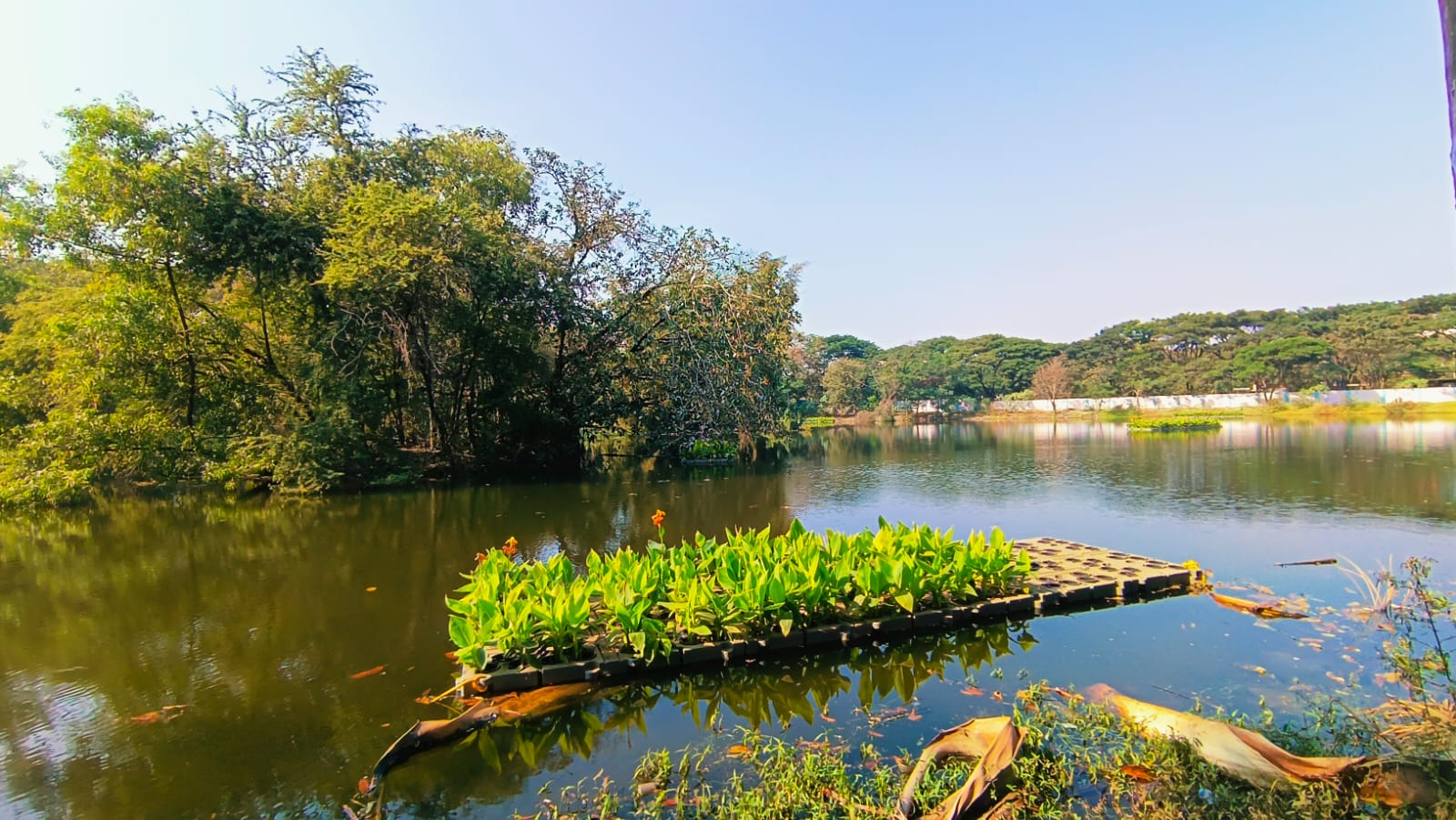Building a greener future in India with urban garden restoration

There is power in collective action for environmental sustainability. Toward this mission, Microsoft collaborated with nonprofit organizations United Way Hyderabad (UWH) and the Forest Regeneration and Environmental Sustainability Trust (FORREST) to support urban ecology in Pune.
Through local and nonprofit efforts, the Urban Garden Restoration Initiative oversaw the creation of nearly two acres of forested park space in Pimpri Chinchwad, an urban municipality near Pune. The program included three stages:
- Land preparation—extensive six-month field surveys across 12 urban gardens identified two key locations (Bopkhel Garden and STP Garden in Chikhali), based on ecological value and community impact. Planners worked with Pimpri Chinchwad Municipal Corporation (PCMC) to ensure a sustainable long-term restoration approach.
- Planting of 7,000 saplings—collaboration with technical experts focused on careful selection of native/adapted species to improve biodiversity and restore ecological balance, from fruit-bearing and flowering trees to woody perennials.
- Long-term maintenance—a three-year care approach ensures high survival rates, along with a monitoring system to track plant health. Investment in materials such as bamboo, boulders, and safety gear help support growth alongside pruning, mulching, manure fertilization, and watering.
The initiative focused on community engagement, bringing together local residents, volunteers, and stakeholders in the garden’s creation, maintenance, and awareness campaigns to promote long-term sustainability. Over time, the green spaces will help add value in several forms:
- Ecosystem services—the variety of indigenous tree species supports biodiversity, air quality, carbon sequestration, pollution reduction, and ecosystem restoration.
- Sustainable water management—drip irrigation prevents waste while providing optimal watering even during dry periods, ensuring healthy growth for saplings.
- Wetland restoration—silt removal and wetland enhancement at STP Garden support water preservation, flood prevention, and habitats for local flora and fauna.
By creating self-sustaining urban forests, this initiative contributes to environmental protection and improves local living conditions—paving the way for a healthier and greener Pune.
I visit daily. [Microsoft is] not only planting trees but taking care of the plants like children. When these plants grow in the future, this will become one of the best gardens of PCMC. These plants will attract honeybees. This is a good garden for children and elderly [and] will benefit the future generations.
—Suresh Nainwal, Shahunagar, Chinchwad, Pune

